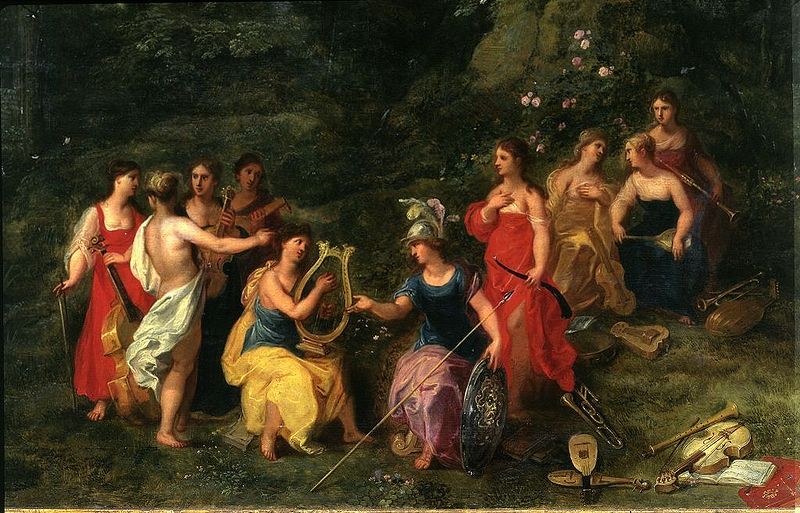The alchemical wealth engine class is having some technical difficulties on delivery because it was a pre-sale item on the new website platform and I am dumb when it comes to the super techy making my business email talk to mail chimp and my orders. I have filed a complaint and tech support is going to work on it. I will keep everyone up to date. With it being a weekend I would expect to hear from them monday or tuesday. Because of this I am extending the sale price of the pre-sale for anyone that didn't get in on time. Thank you all for your support and patience and I will get this to you all as soon as I can. I appreciate you all
Mnemosyne and the 9 muses attunement
$33.33
In stock
1
Product Details
The Muses of Greek mythology each symbolize unique forms of art and intellect, with nine distinct figures embodying different creative realms, and their mother is Mnemosyne the goddess of memory:
Calliope: Known as the eldest Muse, Calliope represents epic poetry and eloquence. Esteemed by the ancient writer Hesiod, she was revered above her sisters. Calliope was the mother of Orpheus and Linus through her union with Eagro. Often depicted as a regal young woman adorned in gold, she is called "the one with the beautiful voice," a title she earned by teaching Achilles to sing. She typically holds a trumpet and a parchment scroll.
Clio: Clio, the goddess of memory, oversees history and artistic creation. She plays a crucial role in maintaining historical records and international diplomacy. Often portrayed with a book by Thucydides, Clio is also credited with inventing the guitar.
Erato: This Muse focuses on romantic and lyrical poetry. Traditionally adorned with a laurel wreath, post-Renaissance portrayals show her wearing a crown of myrtle and roses. She holds a zither and is frequently shown with turtle-doves at her feet, sometimes accompanied by Eros, the god of love. Her name, meaning "lovely," signifies her influence in making individuals loved and desirable.
Euterpe: Known for her association with music and lyrical poetry, Euterpe, called "the very pleasant one," is particularly linked to the flute. She is depicted with a crown of flowers and holding a double-piccolo, along with other musical instruments like violins and guitars. Euterpe is the mother of Reso, a warrior noted in Homer's Iliad.
Melpomene: Initially linked to song and music, Melpomene later became recognized as the Muse of tragedy. She is portrayed in tragic attire, complete with a diadem and a tragic mask. Known as "the melodious one," she is described as a figure possessing beauty and wealth but lacking in happiness, a reflection of the tragic essence.
Polyhymnia: This Muse is connected to sacred poetry, rhetoric, dancing, agriculture, and geometry. Typically shown in white attire, leaning thoughtfully on a pedestal, Polyhymnia is also depicted with a chain, symbolizing her eloquence.
Thalia: As one of the Muses of theater, Thalia is tied to comedy and bucolic poetry. She is often seen as a joyful, laughing figure, wearing a comedic mask and embodying the essence of nature-inspired verse. Her name translates to "flourishing."
Save this product for later
Mnemosyne and the 9 muses attunement
Display prices in:USD

